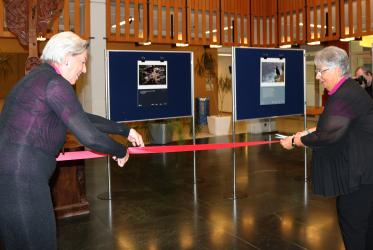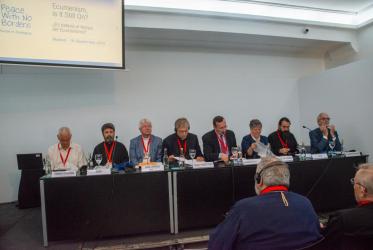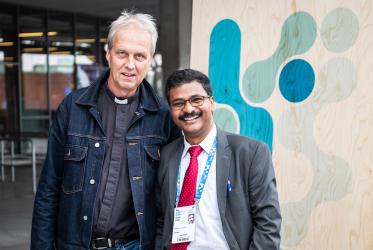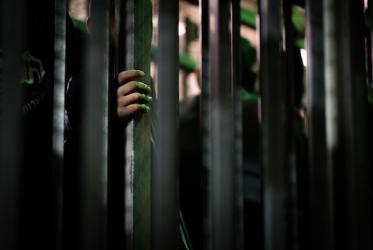Displaying 161 - 180 of 445
19 November 2019
WCC Eco-School begins in Thailand
07 November 2019
Patriarch Bartholomew, archbishop of Sweden sign joint editorial
30 September 2019
Photos portray the wonder of creation - and urgency of care
27 September 2019
WCC President Wejryd: ‘Water, in many ways, represents God’
27 September 2019
American and Swedish church leaders sign joint climate justice pledge
26 September 2019
WCC supports health and wellness in Africa
27 August 2019
Water and Faith showcase highlights results of collaboration
26 August 2019
“Economy of life” lifted up at special school in Indonesia
22 August 2019
A humble servant in God’s herd
10 July 2019















